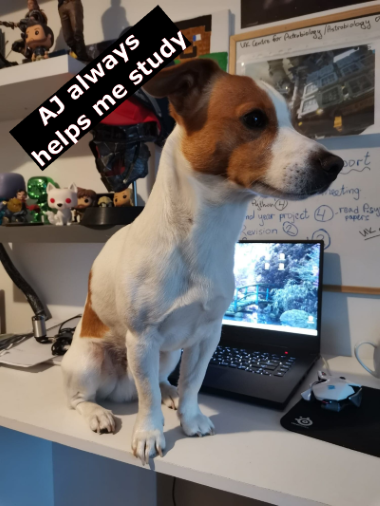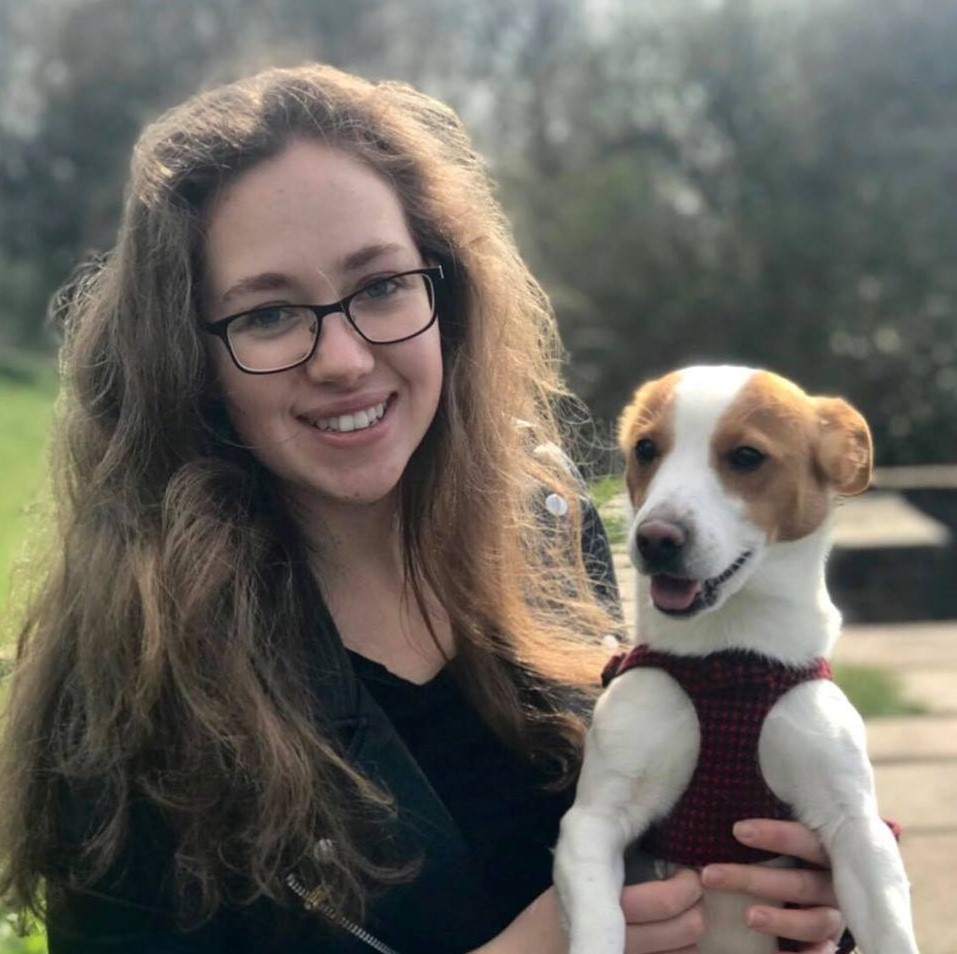You are here
- Home
- Summer studentship during COVID-19
Summer studentship during COVID-19

During my second year as an undergrad at the University of Manchester, I began to develop a great interest in Astrobiology. It all started with a book, of course… Prof Matthew Cobb, who was teaching evolution made a big impression on me through his lectures, because they did not feel like university lectures at all; he conveyed the material with such passion and articulation, I felt like I was watching a live popular science documentary. And he was always recommending books with some students even wondering whether the books were actually compulsory further reading! One book grabbed my attention: ‘Aliens: Science Asks, Is There Anyone Out There?’ by Jim Al-Khalili. The book constituted essays from scientists, reflecting on the idea of aliens in human culture, past and current attempts to find extra-terrestrial beings and where we need to look. To my great surprise, astrobiologists were among the authors. I had never heard about Astrobiology before and just based off the name itself, I instantly wanted to learn who are these astrobiologists, where do they work and what do they do. The more I read, the more attracted I was to the field of Astrobiology.
My Molecular Biology degree at the University of Manchester helped me find my passion for science at the molecular and genetic level. But applying it while thinking about the possibility of life on other planets, seemed like the perfect fit for me and my future career plans! I have always had an interest in space, but I never particularly enjoyed physics as much as I enjoyed learning about DNA and the mechanisms of life. This is why I wanted to get a taste for Astrobiology before I graduated. Immediately after starting my industrial year placement, I began looking for internships and work experience opportunities in Astrobiology. After one unsuccessful attempt, I was very fortunate to receive a reply from AstrobiologyOU, one of the largest Astrobiology groups in the UK! I had a meeting with Dr Michael Macey, a postdoc from the group, and we discussed a possible project for summer 2020. The idea was to investigate if sulfur-oxidising bacteria are able to survive in simulated Martian chemical conditions, whether they can support the growth of other bacteria and if they produce any detectable biosignatures (unambiguous signs of life). I cannot even describe how excited I was to work on this project and to try new laboratory techniques. We even won funding from the Microbiology Society, so I did not have to worry about paying for moving to Milton Keynes for two months and covering my bills. It was truly a dream come true!
However, the most unexpected thing happened when the SARS-CoV-2 virus caused the COVID-19 pandemic. My summer studentship was cancelled, of course, but with the misery and devastation that the pandemic caused around the world, it seemed quite inappropriate for me to mourn about the missed opportunity. Nevertheless, the events took a pleasantly unexpected turn when Michael was still optimistic about our undertaking and suggested that we do a Bioinformatics project instead. Initially, I had mixed feelings, because I had previously attempted to learn basic programming concepts but not with huge success. I was able to write a few lines of code and make simple programmes e.g. calculate how many Valines were present in an amino acid sequence. I was by no means confident in my skills and I wasn’t sure if I would do a good job. Anyway, I decided to take the leap!
Michael and I worked with a metagenomics sequencing dataset from a NASA cleanroom that handled the Phoenix lander (Launched 2007 and landed on Mars in 2010). We wanted to look at this data to further investigate the microbes that were able to survive in this cleanroom as there is the possibility that these cleanroom organisms would be transferred and contaminate extra-terrestrial bodies – by better understanding the microbes that survive the strict cleaning regimes of the cleanrooms we can improve our strategies to reduce the bioburden on future spacecraft.
Michael and I had weekly Skype meetings to work on analysing the data. My industrial placement was also extended during this time, so I was juggling a full-time job at a molecular diagnostics company, a remote student internship with AstrobiologyOU and writing a 30-page report about my placement year to submit to university. It was incredibly busy, but at the same time exciting! I felt that I was quite fortunate to have the opportunity to make myself useful during the pandemic. I really enjoyed the Bioinformatics work with Michael - I spent hours trying to figure out how to run some of the software for analysing the sequencing data. It was almost like trying to solve a puzzle and I loved it! I also got to know about AstrobiologyOU through my meetings with Michael and was able to get great insights into the life and work of an astrobiologist. Despite doing a remote studentship, I still got a lot out of the experience in terms of knowledge, skills and making a new friend! Moreover, I realised that a career in Astrobiology would be a perfect fit for me. I am glad that I took the leap and managed to get the most out of the unfortunate circumstances!

Author:
Velislava Ilieva is a Summer Student with AstrobiologyOU
Latest News
- Intern Opportunity at ESTEC 10th November 2023
- CALICO: A Future Mission Review at ESA 23rd May 2023
- Join our team as a PDRA - CLOSED 9th February 2023
- PhD studentships now OPEN for applications 1st November 2022
- Senior Fellow Position **Closed to Applications** 20th September 2022